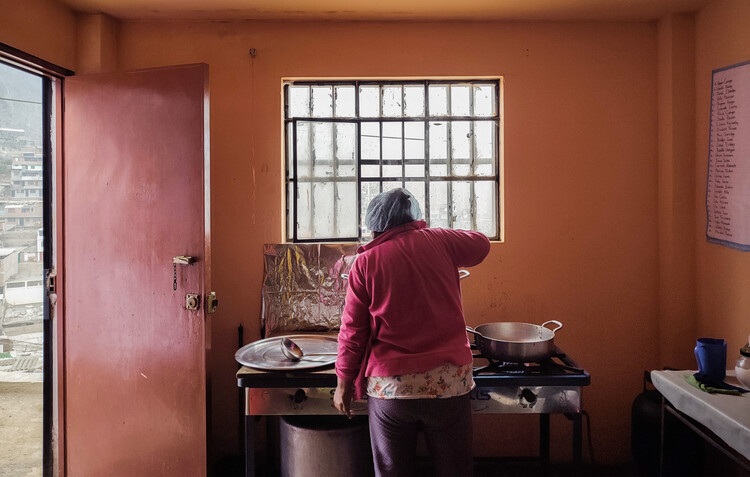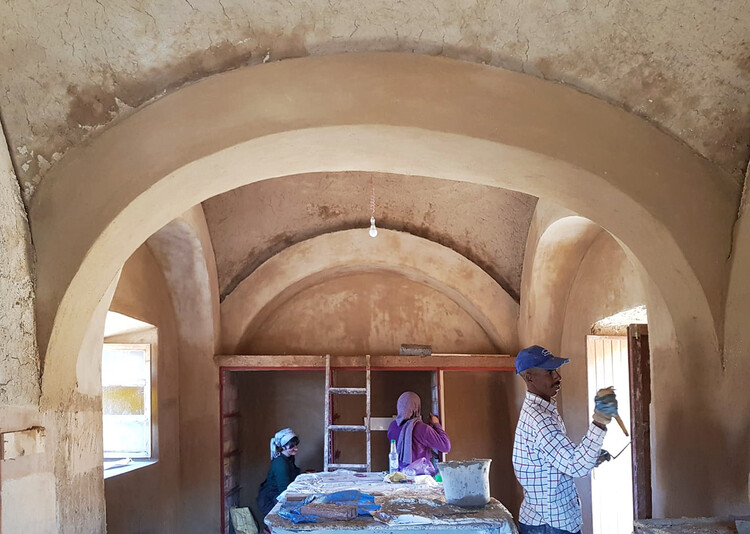
The Architecture in Development Global Challenge has just announced the finalists for the 2022 edition of the competition. Highlighting and celebrating the ongoing efforts of self-built community-led initiatives worldwide, the Global Challenge offers a platform for those initiatives while connecting partners and collaborators globally.
From 19 applications received, on February 16, 2023, the global challenge jury, composed of many architects, designers, and thinkers worldwide, including Johann Baar (The Hilti Foundation), David Barragan (Al Borde Arquitectos), David Basulto (ArchDaily), Ole Bouman (DesignSociety), David Cole (Building Trust International), Kira Intrator (Aga Khan Development Network), Irene Plan-chuelo Gómez (TECHO Internacional), Doina Petrescu (University of Sheffield), Rob Breed and Changfang Luo (Architecture-in-Development), selected nine finalists.
Read on to discover the nine final proposals of the 2022 Global Challenge with text by the Jury.
San Blas Social Action Center (Venezuela)

San Blas Social Action Center (Venezuela) is led by a social organization joined by spatial experts. It is about a process: a process of transforming a neighborhood dump site where architecture became the means for place-making and the reason for community action.
Book House (China)

Book House (China) was born from a close collaboration between local carpenters and design professionals. Rather than a one-off effort, it aimed to create a network of children's libraries. The professionals learn from local, vernacular know-how and develop a viable, scalable approach to restore the cultural identity of villages during China's unprecedented urban growth.
Barrios que Cuidan (Peru)

Barrios que Cuidan (Peru) was an initiative started by neighborhood leaders and a women’s organization, joined by social workers and a group of architects and sociologists. Providing a place for the existing cooking activities, it celebrates and empowers the caretakers (often low-income, single mothers, female migrants, etc.) to become active leaders in improving their communities' food and social resilience.
The Women's House of Imloul (Morocco)

The Women's House of Imloul (Morocco) was initiated by a local women’s association, joined by a group of international professionals. The process of collaboration creates a testing ground where modern and vernacular know-how encounter and learn from each other. The project will not only improve women’s economic opportunities but also tackle ongoing desertification in the region.
KuNa, Construyendo Sueños (Nicaragua)

KuNa, Construyendo Sueños (Nicaragua) is an endeavor by a multidisciplinary team of local craftsmen and international experts. It proposes a scalable approach that provides not only houses but also life-changing skills and tools to communities for building their future homes sustainably.
Kakr Buluh Awar (Indonesia)

Kakr Buluh Awar (Indonesia) is a collaboration between the leaders of the village and design professionals, involving local communities in building a church as well as in the process of restoring the once-forgotten bamboo supply-construction chain. The project has successfully improved villagers' economic opportunities while reviving the culture and tradition of the place.
La Villa Pesquera del Crash Boat (Puerto Rico)

La Villa Pesquera del Crash Boat (Puerto Rico) was initiated by a multidisciplinary team of local fishermen association, legal, design-planning, and coastal experts to restore the fisher’s village, which was damaged by a hurricane in 2017. Through advocacy and master planning, the project catalyzes a process of restoring the identity, culture, and economy, strengthening the resilience of the local community.
The Baitussalam School (Pakistan)

The Baitussalam School (Pakistan) is a joint initiative by a local NGO and architects, providing a school for children who lost access to education due to flooding in 2022. Besides the physical school, it also aims to introduce communal farming to increase the long-term food self-sufficiency of the community.
Mini-Cyclone Shelter for Vulnerable Communities (Bangladesh)

Mini-Cyclone Shelter for Vulnerable Communities (Bangladesh) is a participatory housing development involving local families, government, community architects, and experts of a local NGO. Besides building safe homes, it provides shelter for communities to gather during cyclones, increasing social and climate resilience among the coastal and riverine communities.
At the core of the Global Challenge Competition Awards is the importance of the team’s capacity and community involvement. Each submission was carefully judged based on whether community trust was established and whether the project was born from the aspirations of the local neighborhood. Moreover, the Do-It-Together architecture that Global Challenge promotes and facilitates promotes the complex process of co-creation and meaningful development.
The Global Challenge competition, in partnership with Architecture-in-Development, recognizes the most impactful, sustainable, community-driven, and well-rounded architectural projects, helping accelerate their development. The 2021 Global Challenge Finalists ranged from groups testing climate-resilient food systems to develop a kitchen lab in the Lacandona Rainforest, a community center in Colombia combining a cooking school, a recycling FabLab, and artists residencies, and a school in India which community members built.















